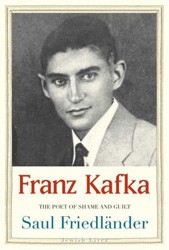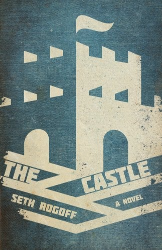All of this requires that a good deal of information be jammed into each sentence, if one is to get it all into a book of 160 pages, which also includes pictures, quotations, reference notes, and a bibliography and filmography. Gilman’s prose, therefore, is thick with facts, though quite readable.
He examines the many conflicts that existed in Kafka’s life: his relationship with his overbearing father; his feelings about the women he knew and perhaps loved and certainly toyed with; his difficulty in deciding whether to write in his native Czech or the German in which he was educated, and his pursuit of his acquired interest in Yiddish and Hebrew; and the time he devoted to his career in the insurance business, versus his absorption in his writing and the literary and cultural life of his native Prague. And finally, Gilman also points to what was perhaps the central conflict of his life, that “Kafka’s Jewish identity and his sense of himself as a writer are doubly linked, for as a writer he could both be and transcend being a Jew.”
All of the foregoing leads to Gilman’s analysis of Kafka’s impact on his literary heirs and on the cultural scene in which they continue to flourish. This compact biography has much to offer today’s reader of Kafka’s work.





